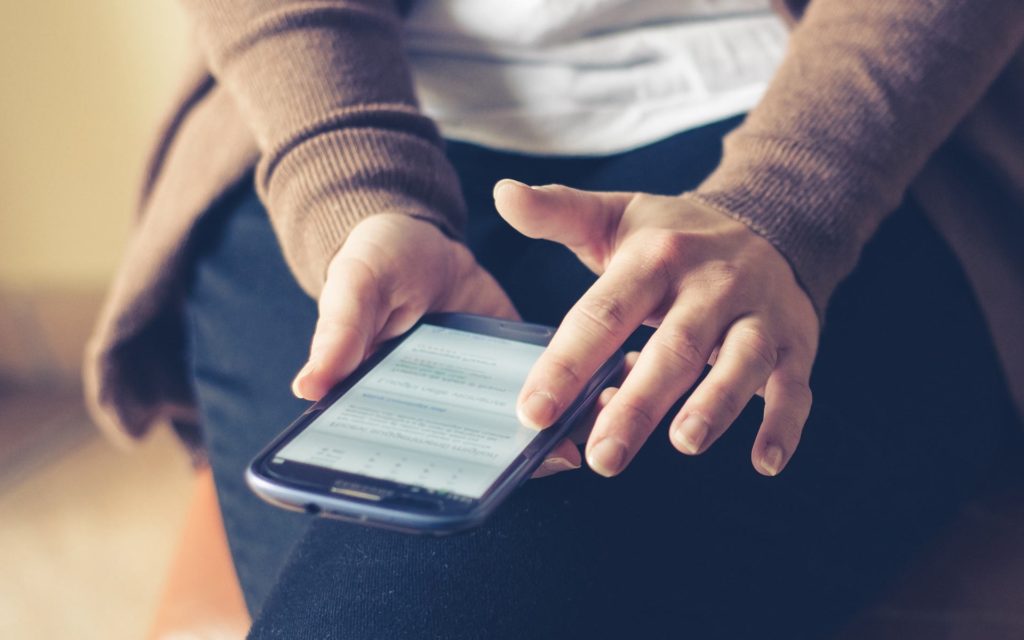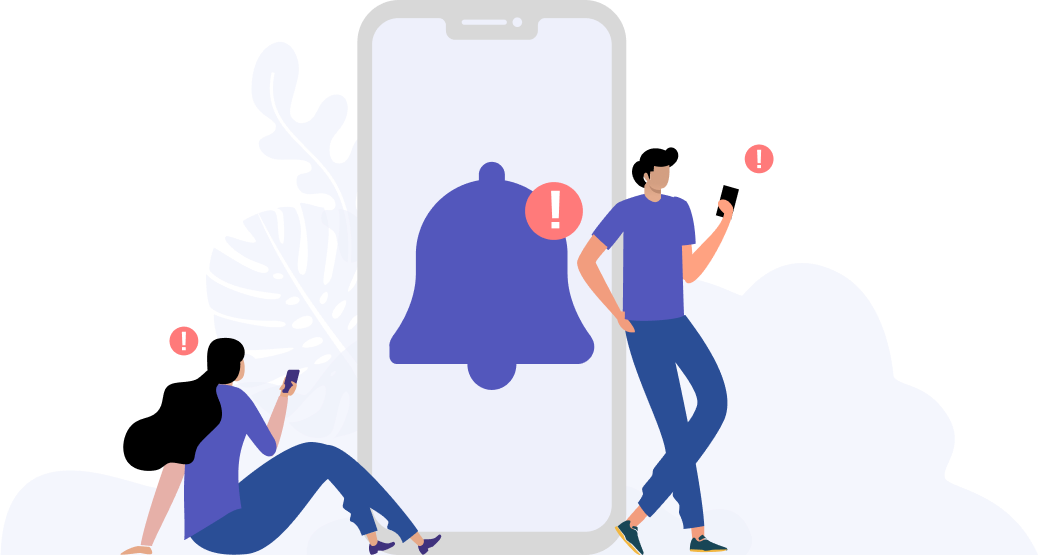Disconnect to Connect: How to Know if You’re Addicted to Your Smartphone

Do you know how often you use your smartphone? A simple check in your settings can give you an overview of your usage, and you might be alarmed at what you find. People stay online for an average of 24 hours a week. Of course, this is not entirely our fault, our devices are designed to be addictive.
Checking your daily phone usage is one way of identifying whether you are addicted to your smartphone, but we’ve have listed other signs that tell whether you are addicted to your smartphone.
Symptoms of Addiction.
1. False Alarms.
You may have heard of this term, ‘Phantom Vibration Syndrome’. Essentially, you feel your phone ringing/vibrating but when you check, there’s nothing there. This could mean that you have been so accustomed to your phone vibrations and ringing that your body interprets similar neural pathways as notifications from your phone.
2. A constant need to check your phone.
Doesn’t it annoy you when you’re in class or a meeting and you can’t check your phone? Such instances could be fueled by our compulsive need to constantly check our phones for updates.
3. Mindless checking and scrolling.
Research has shown that our mindless scrolling is fueled by our anticipation of what the next post is about.
4. Your smartphone is your bathroom companion.
Your bathroom or any bathroom should be a phone-free zone. “Probably the worst thing for your productivity is to be on your phone in the bathroom, for sure,” said author and productivity coach Peter Bregman.
5. You sleep with your smartphone next to you.
You may find yourself attached to your smartphone even during your bedtime.
While the technology of our smartphones opens up endless possibilities for us, they’re also at the expense of our mental health. Here is a list of negative effects caused by an addiction to smartphones.
1. Anxiety
Our inadvertent reliance on our smartphones is associated with increased anxiety. An experiment whereby students had to give up their smartphones for a day resulted in them feeling a degree of anxiety.
2. Digital Eye Strain
Extensive screen time is linked to a group of eye and vision-related problems known as digital eye strain. You could get dry eyes, irritation or redness. You can learn more about digital eye strain and its preventive methods from our own universal scientific report, ‘Screens and Our Eyes, the strain is a global one.’ here.
3. Neck Strain
Your smartphone may be a pain in the neck. Staring down at your phone at a 45 degree level for a prolonged time may cause pain and pressure around the neck area.
4. Lack of Sleep
Smartphone use is correlated to a reduced quality of sleep. The blue light emitted from our smartphones causes our brains to interpret as daylight. If you’re staring at your smartphone screen before bedtime, falling asleep proves a challenge. While smartphones are now equipped with night mode, a study has shown that these night modes are insufficient.
Here are some preventive methods you can cultivate to curb smartphone addiction.
1. Turn off push notifications
Turn off notifications for as many apps as possible. You don’t need to be constantly updated with every ‘like’ your Facebook or Instagram post gets.
No notifications, no need to check your phone.
2. Don’t take your phone to the bed
By charging your phone out of reach and using an alarm clock, you are on your way to fighting your smartphone addiction.
3. Set your phone on airplane mode
Switching on airplane mode can help you eliminate all temptation to check your phone. With no service to the Internet, you won’t get any notifications. If you have a task at hand, you’re more inclined to complete it quicker.
4. Limit smartphone usage
Create phone-free zones for yourself.
A study has found that Americans check their phones 52 times a day. Of course, it is nearly impossible to not check our phones at all, so perhaps keeping our smartphones away from social gatherings can be the first step.
5. Plan breaks
If your work is centered around staring at screens, plan half-hourly breaks to let your eyes rest.
At the end of the day, while we should not be averse to smartphone technology, it is important that we are aware of the dangers that come with the constant intrusion of technology. In our fast-paced society, technology was supposed to help us lead saner lives, but instead, it has made it more difficult to set boundaries around our working or schooling lives. It’s definitely not an easy journey, but staying away from your smartphone will benefit you in the long run.
Tools Designed for Healthier Eyes
Explore our specifically designed products and services backed by eye health professionals to help keep your children safe online and their eyes healthy.





